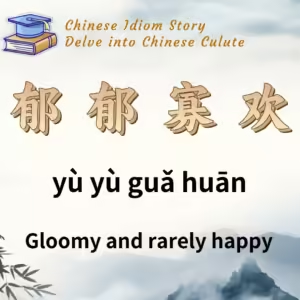
Chinese Idiom: 叹为观止 (Tan Wei Guan Zhi)
English Translation: Sighing with admiration
pīn yīn: tàn wéi guān zhǐ
Idiom Meaning: This idiom is used to express admiration for something that is so perfect or excellent that one feels nothing could surpass it. It denotes reaching a level of excellence that one feels is the ultimate.
Historical Source: 《左传》 (Zuo Zhuan), specifically from the entry for the 29th year of Duke Xiang’s reign.
Idiom Story:
During the Spring and Autumn Period, Ji Zha (季札), a nobleman from the State of Wu, was sent on a diplomatic mission to the State of Lu. Known for his wisdom and extensive knowledge, Ji Zha was eager to witness the music and dance of the Zhou Dynasty.
The ruler of Lu, Duke Xiang, ordered the court musicians to perform representative music and dances from various states for Ji Zha. After witnessing each performance, Ji Zha offered his evaluations:
- For the “Elephant Dance” (象箭): He said, “Beautiful! But there are still some regrets.”
- For the “Great Dance” (大武): He remarked, “Beautiful! This must be how the Zhou Dynasty flourished.”
- For the “Shao Dance” (韶薄): He commented, “As grand as the saints’ virtues, yet there is still humility. It shows how hard it is to be a sage.”
- For the “Da Xia Dance” (大夏): He said, “Beautiful! Diligence without self-conceit is something only Yu the Great could achieve.”
- For the “Shao Dance of the Arrow” (韶箭): He finally stated, “The virtues have reached their peak. It is as vast as the heavens and as encompassing as the earth. Such excellence cannot be surpassed. This performance is perfect; I do not dare to ask for anything more.”
In the end, Ji Zha concluded that the performance had reached its pinnacle, and he was satisfied, thus coining the phrase “观止矣” (guān zhǐ yǐ), meaning “viewing it has reached its limit.”
This phrase evolved into the idiom “叹为观止,” symbolizing a level of perfection so high that no further improvement is needed or expected.






